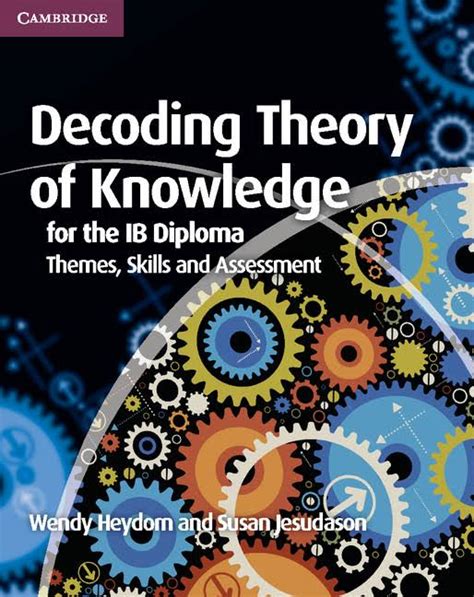The difference between true experts and mere imitators has always been a topic of interest in both academia and industry. It’s not just about who knows the most but who can convey that knowledge effectively to others. This idea was highlighted in a discussion about experts’ frustrations when engaging with those less knowledgeable. Interestingly, while some believe that experts derive their status solely from their extensive knowledge and experience, the ability to communicate this knowledge effectively is an equally vital characteristic. For instance, in programming communities, discussions often surface around which languages, such as Rust and Python, offer better safety or usability. Experts can usually provide deep, clear explanations to help others understand the intricacies involved. In contrast, imitators often fail to answer follow-up questions convincingly, as they lack an in-depth understanding of the subject.
One significant point in these discussions is the ability to communicate complex technical details to different audiences. A common challenge faced by experts is explaining highly specialized concepts in layman’s terms without oversimplifying or losing the essence of the topic. For instance, consider the comparison between Rust and Python in terms of memory safety. An expert might explain that Rust provides **memory safety** by ensuring that certain kinds of programming errors (like memory leaks) are difficult or impossible to commit through its ownership system. This is crucial when developing systems where performance and safety are top priorities. On the other hand, Python uses **garbage collection** to manage memory, which, while making the language easier to use for everyday coding, does not provide the same guarantees around memory safety. A true expert can tailor their explanation to the audience, whether they are discussing with fellow developers or explaining to someone with minimal technical background.
Furthermore, communication isn’t just about being understood; it’s about engaging the audience at their level of knowledge. For example, when discussing the **safety advantages of Rust over Python**, one might use analogies. An expert might say: ‘Think of Rust as a kitchen with a setup that forces you to clean up immediately after cooking, leaving no dirty dishes around. In contrast, Python allows you to leave dirty dishes (unmanaged memory) lying around but periodically sends someone to clean up, which can be less efficient and leave things messier longer.’ Such analogies make complex topics accessible and often trigger more in-depth questions from the audience, facilitating a more profound understanding. This is where experts shine—they can navigate from basic concepts to more intricate details seamlessly.
The inability to communicate complex ideas effectively often distinguishes imitators from true experts. This was evident in discussions where people could explain basic concepts of programming languages but stumbled over follow-up questions that required deeper understanding. For instance, when asked about the benefits of Rust’s safety guarantees, a true expert might delve into specifics like the **borrow checker** and how it prevents data races at compile time, whereas an imitator might struggle to go beyond surface-level descriptions. The expert’s ability to explain using examples that match the questioner’s current knowledge level makes the difference. This capability isn’t just about knowing facts; it’s about understanding concepts so deeply that they can be simplified accurately without losing their meaning.
Moreover, an essential aspect of expertise is recognizing the boundaries of one’s knowledge. True experts are not afraid to admit when they do not know something—a quality that often enhances their credibility. This humility was reflected in discussions where participants clarified the need for deeper understanding but sometimes hit the limits of their expertise. They explained complex phenomena such as **memory allocation** in Rust versus Python and provided insights into why certain design choices were made in one language over the other. An imitator might give misleading or overly simplistic answers in such situations, revealing their lack of true understanding. In contrast, experts acknowledge their gaps and often guide the conversation towards collaborative learning opportunities.
Interestingly, the way experts handle fundamental questions can also show their depth of knowledge. When explaining basic concepts like ‘what is memory?’ or ‘how does garbage collection work?’, an expert doesn’t just rely on analogies; they provide clear, step-by-step explanations that build on each layer of understanding. For instance, ‘Memory in a computer is like counter space in a kitchen. Rust ensures you always have the space cleaned up after each task, while Python periodically checks and cleans up for you,’ might be an introductory explanation. Still, experts would be ready to dig deeper into **memory management specifics** if the listener shows interest, such as discussing how Rust’s ownership model directly ties into preventing memory leaks.
Lastly, discussions around expertise often touch on the broader impacts of how knowledge is shared and communicated. With advancements in technology and the increasing complexity of systems, the ability to break down and share information becomes even more critical. Experts in fields like machine learning, cybersecurity, or software engineering are not just valued for what they know but for how they can **impart that knowledge** to others, fostering a culture of continuous learning and improvement. For instance, explaining how different machine learning models work requires not just technical knowledge but the skill to relate these to practical applications and solving real-world problems. This is something that experts consistently do well, setting them apart from imitators who might only have a superficial grasp of such technologies.
In conclusion, true expertise goes beyond having extensive knowledge. It encompasses the ability to convey complex ideas clearly, adapt explanations to different audiences, recognize the limits of one’s understanding, and remain open to learning. This blend of knowledge and communication makes experts invaluable in any field. They not only excel in their domains but also elevate others by sharing their insights effectively. The ongoing dialogue about expertise versus imitation reminds us that learning is a continuous journey, and true mastery comes with the humility to teach and the grace to acknowledge what we do not yet know.


Leave a Reply